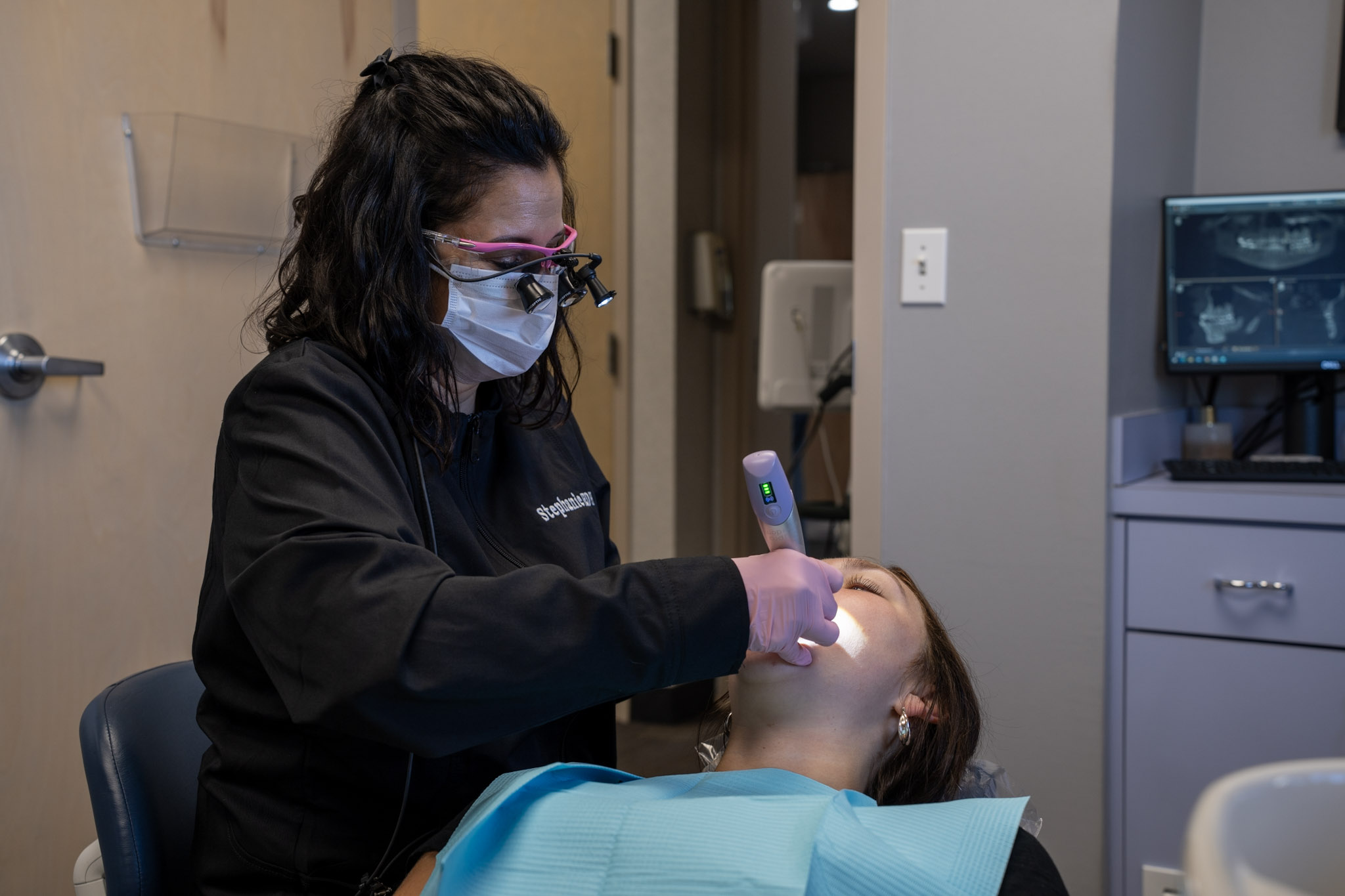Welcome to Chester Family Dentistry!
Dentist in Warren Ohio at Chester Family Dentistry prioritizes your oral health. Our exceptional dentist team in Warren, OH, Led by Dr. Ana with over 35 years of experience, is dedicated to providing personalized care using the latest technology. We believe in empowering you to make informed decisions about your dental and overall health by educating our patients. With a focus on comprehension and compassion, we create customized treatment plans tailored to your unique needs. We combine expertise, empathy, and a positive environment to ensure you receive the best care possible. Experience the Chester Family Dentistry difference—where your smile is our mission and a positive environment ensures you feel at ease every visit.

Dentist in Warren Ohio – Our Trustworthy Practice
Chester Family Dentistry welcomes anyone searching for dental care they can trust, an office where they feel relaxed and comfortable, and a dentist who has the experience to deliver high-quality dental treatment. You’ll have a hard time finding a more compassionate dentist to treat your family or one who’s better at helping alleviate dental anxiety, in the area of Warren, Ohio, and surrounding areas in Trumbull County. Our dentist welcomes you to call for a free consultation, so you can learn about the status of your dental health
At Chester Family Dentistry, our dentist makes it a point to answer all your questions, explain procedures, and take the time necessary to make your dental experience comfortable. We provide comprehensive dental services to patients of all ages, so whether you need a regular checkup or urgent care for dental pain or injury, you can count on our dentist to keep your teeth healthy.
Why Choose Dentist in Warren Ohio?

Comprehensive Dental Services
Dentist in Warren Ohio Offers Comprehensive Dental Services
We value your loyalty. For our patients without insurance, we’ve launched our wellness membership to simplify payments for preventative care. Our loyal members also save money on treatment.
Learn MoreOur Bright and Shining Client Testimonials
Frequently Asked Questions
Do you accept appointments?
Yes, we do accept appointments at our office. In fact, we highly recommend that you schedule an appointment with us in advance to ensure that you receive the best possible care.
Do I need to arrive early for my first appointment?
Yes, please arrive at least 10-15 minutes early to fill out any patient forms.
What forms of payment do you accept?
We accept checks, cash, credit cards, and most insurance plans. Contact our office so a member of our team can verify your insurance or visit our Payment Options page for more information!
How often should I visit the dentist?
It is important to schedule routine checkups and cleanings to keep your teeth and gums healthy. It is recommended by the ADA to visit the dentist at least once every six months. Contact us now to book your appointment and take the first step toward optimal oral health!
What services do you offer?
We are happy to offer a variety of services including:







